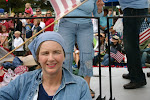Phil Ochs and News in Random Lengths
Phil Ochs: Even by the standards of the 60s, few singer-songwriters combined music with political activism to the extent Phil Ochs did. His music was a reflection of the times. Read more on page 11 of http://tinyurl.com/RLn111711
If you care to scroll through this link, you'll find my review of the Phil Ochs There But for Fortune DVD and also my news report of a major fire that swept through part of a mobilehome park and a construction site in Carson on October 27:
http://tinyurl.com/..RLn111711
You'll also find more of my reviews and news stories at the http://www.randomlengthsnews.com/ site.
Should the above link to the Phil Ochs review be down, here's the content:
Even by the standards of the sixties, few singer-songwriters combined music with political activism to the extent Phil Ochs did. His music was a reflection of the times but these days his contributions are largely forgotten. That might be partly because he's one of a long list of musical geniuses who died too soon, or maybe because his fan base is nowhere near the equal of Bob Dylan's.
Phil Ochs: There but for Fortune, a documentary DVD from First Run Features, attempts to place Ochs in a broader historical context.
"Phil's very tough grieving songs were far more political, much more tough-minded than the much more generalized and accessible "Blowing in the Wind" [for example]," postulates writer Christopher Hitchens, one of many who shared their thoughts and memories for the documentary. "There was a difference between the people who liked Bob Dylan--everybody did--and people who even knew about Phil Ochs."
Other interviews blend the personal, political, and musical: Joan Baez, Peter Yarrow, Pete Seeger, Van Dyke Parks, Dave Van Ronk, Tom Hayden, Abbie Hoffman, and Jerry Rubins, to name a few, along with some of Och's surviving family and personal friends. Contemporary stars Billy Bragg, Jello Biafra, and Sean Penn offer a more current perspective.
The film mixes clips of Ochs performing, protesting, and being interviewed, with news footage of events he sang about and often was a part of. The result makes more of a history lesson than musical journey. That means his songs, even a classic like "There but for Fortune," simply aren't given adequate space.
"The topical song movement evolved out of opposition to segregation, the Civil Rights movement in general, and subsequently the Vietnam War," folksinger Van Ronk comments. "Without the howling injustices and outrages, there would have been no protest movement and probably no folk song movement."
That many of Ochs' songs remain relevant is demonstrated by how the punk rocker Biafra has often revived Ochs' "Love Me, I'm a Liberal," changing the president's name from Kennedy to Clinton to Obama--but the song remains otherwise the same. The film's thesis would have been greatly strengthened if the entire song had been performed here, and it's not.
Then there's a snatch of another sixties-era Ochs lyric about anti-union sentiment, "Some people think that the unions are too strong / Union leaders should go back where they belong," but the film doesn't even tell us the song's title.
Ochs went into artistic and personal decline after he saw his hope for a new youth-driven political party--the Yippies--smashed to pieces on the streets of Chicago during the 1968 Democratic Convention. He spun into alcoholism and mental illness.
Even so he went onto mark a few more musical milestones. He recorded with African musicians--the first white American musician to do so, a decade before Paul Simon and Graceland. After the 1973 CIA-backed coup in Chile, he organized the ironically named "An Evening With Salvador Allende" concert in protest.
"It was the first time people got up in public and said the CIA was behind the overthrow of Allende," remembers Arthur Gorson, who helped organize the concert.
In May 1976 Ochs observed the end of military action in Vietnam with another major concert, featuring Baez and others who'd protested the war. "That was the last dragon to be slain," comments Ochs' brother Michael.
Less than a year later Ochs committed suicide. He was 35. His songs and records survive--barely.

